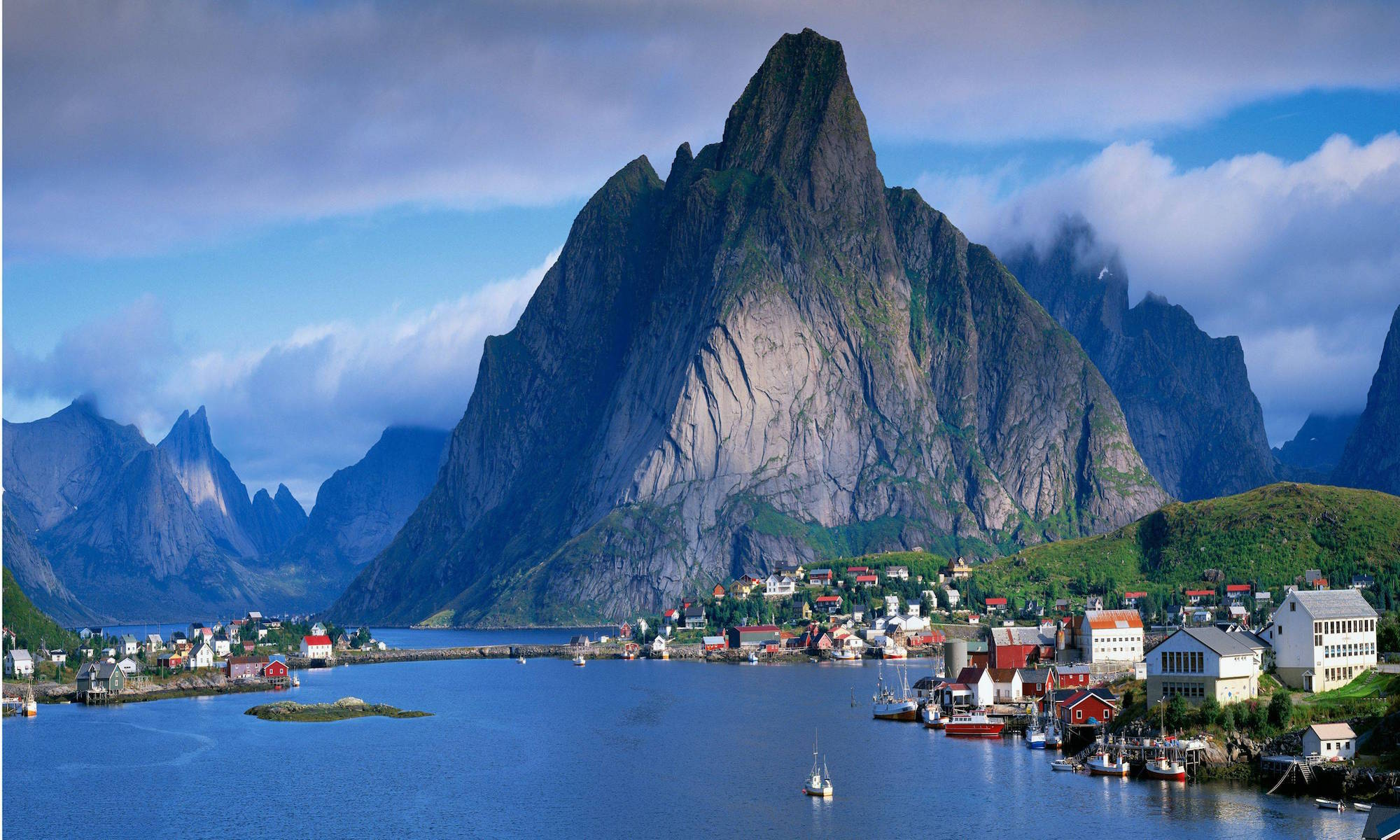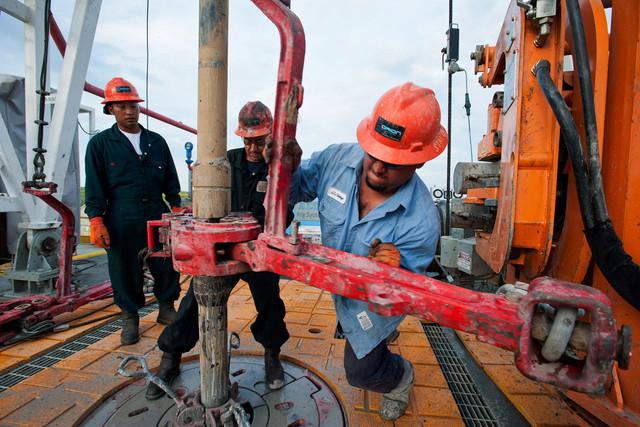So, Willeke Van Doorn’s post today makes Norway sound like the place you’d like to live ….
One of the wealthiest countries in the world with one of the world’s highest standards of living, incredible scenery and the world’s second-happiest people, Norway is – unlike so many oil-rich states – bent on conserving its national wealth for future generations. The Economist has a current post about Norway’s sovereign-wealth fund, which is the largest in the world with $882 billion in assets, more than double the national GDP. Oh, and the Norwegians have never tapped it.
There’s virtually no crime in Norway, because there are hardly any people to commit crimes or – for that matter – be victims. The entire population of Norway is 5 million, roughly the same as Atlanta.
So, how hard is it for a skilled migrant to get a residency permit?
First of all, Norway is not a European Union country and uses the Norwegian Krone, not the euro. BUT, Norway is a Schengen Area Member Country, which means open borders for EU citizens and goods. So, EU citizens are free to come and go without visas, and Norwegians are free to come and go in the EU.
 Second, unlike the Netherlands or Sweden, English is not a second language in Norway. Yes, 90 percent of Norwegians speak and understand English. Still, as Willeke points out, it’s difficult to work in Norway if you don’t speak Norwegian, which isn’t the case in the Netherlands. There are, of course, exceptions to that, especially on the North Sea oil platforms, the source of so much of Norway’s wealth.
Second, unlike the Netherlands or Sweden, English is not a second language in Norway. Yes, 90 percent of Norwegians speak and understand English. Still, as Willeke points out, it’s difficult to work in Norway if you don’t speak Norwegian, which isn’t the case in the Netherlands. There are, of course, exceptions to that, especially on the North Sea oil platforms, the source of so much of Norway’s wealth.
Norway needs skilled workers. A survey last year found that more than half of 5,300 Norwegian companies surveyed reported skills shortages.
To meet demand, the number of work permits granted to skilled foreign workers went up by 17 percent in 2012 compared to the year before. Almost 10,000 people from outside the European Economic Area (EEA) were granted work permits in Norway that year.
Demand continues to grow, especially in engineering and IT. Other sectors including health care and elderly care are also short on professionally trained staff, according to various government recruitment websites.
And by the way, despite 20 percent of the country being above the Arctic Circle, most foreign workers decide to stay. Slightly more than 96 percent, according to Anders Sjøløkken, HR director at FMC Technologies, an engineering company dealing with subsea installations.
The Norway Directorate of Immigration, or UDI, very helpfully provides a web portal in English to direct you to your various immigration options.
• If you have completed higher education or have completed vocational training, you can apply for a residence permit as a skilled worker. In most circumstances, you need to have already received a job offer, or have your own business.
• Norway apparently needs offshore workers on the oil rigs. The good news is, some petroleum industry workers don’t need a residence permit in order to work offshore, according to the UDI website.
This applies if you meet the following requirements:
- You are to work on a Norwegian or foreign mobile installation on the Norwegian continental shelf.
- The installation cannot be in a fixed production phase or tied to a fixed platform.
- Your employer must notify the police before you enter Norway, and you must report to the police no later than one week after entering the Schengen area, before you start working.
- If you travel out of Norway, you can only re-enter the country if your total residence period in the Schengen area does not exceed 90 days during a period of six months.
Most expats are going to have employment contract in hand.
But here’s some of the documentation you’ll need via UDI.
- completed education or degree from a university/ university college, for example a bachelor’s degree as an engineer or nurse
- special qualifications that you have obtained through long work experience, if relevant in combination with courses etc. A permit is only granted in such cases in exceptional circumstances. Your qualifications must be equivalent to those of someone who has completed vocational training.
Requirements relating to the employment relationship
- You must be employed by an enterprise abroad that has a contract with an enterprise in Norway to carry out an assignment in Norway.
- The enterprise in Norway must have a registered business address here.
- As a rule, the offer of an assignment must be for one specific enterprise in Norway.
- The pay and working conditions must not be poorer than is normal in Norway
- The enterprise in Norway must be able to document that the enterprise abroad meets the requirement for pay and working conditions during the assignment.
- Your qualifications as a skilled worker must be relevant to your ability to complete the assignment.
- If you are going to carry out an assignment in an occupation for which recognition or authorisation is required (external website), you must have such recognition or authorisation.
Here are the requirements relating to education/qualifications for vocational workers
You must have one of the following types of education/qualifications
- a completed vocational training programme of at least three years at upper secondary school level, for example as a joiner or health worker. There must be a corresponding vocational training programme in Norway.
- completed education or degree from a university/ university college, for example a bachelor’s degree as an engineer or nurse
- special qualifications that you have obtained through long work experience, if relevant in combination with courses etc. A permit is only granted in such cases in exceptional circumstances. Your qualifications must be equivalent to those of someone who has completed vocational training.
Requirements relating to the employment relationship
- You must have received a concrete job offer from one specific employer in Norway.
- The job must normally be full-time. If you have been offered at least an 80 percent position, we will accept this.
- The job you are offered must require qualifications as a skilled worker. You must have the qualifications that the job requires.
- The pay and working conditions must not be poorer than is normal in Norway.
Special requirements
- If you are going to work in an occupation for which recognition or authorization is required (external website), you must have such recognition or authorization. Health personnel, for example, must enclose an authorization or license from the Norwegian Directorate of Health (external website).
- If you are to work through a staffing agency, you must present a list of the assignments that the employer has planned for you. The assignments must be confirmed by the business/businesses you are carrying out the assignments for. It is only possible for you to get a residence permit for the period of time when you are carrying out the assignments on this list. The staffing agency must be registered in the Norwegian Labour Inspection Authority’s register (external website).
Finally, people fleeing wars and persecution can apply for asylum. Norway has been a top destination for asylum seekers from Syria, Ethiopia and Iran, according to the UDI. But be forewarned. Anti-immigration parties such as the Progress Party are ascendent, and the country adopted a new “strict but fair” immigration policy.
The result is, according to a Wall Street Journal post by U.S. Sen. Tom Cotton, that asylum applications in Norway fell 95 percent between the last quarter of 2015 and the first quarter of 2016.
Norway did agree to accept 8,000 migrants from other European nations even though they weren’t legally required to do it.















